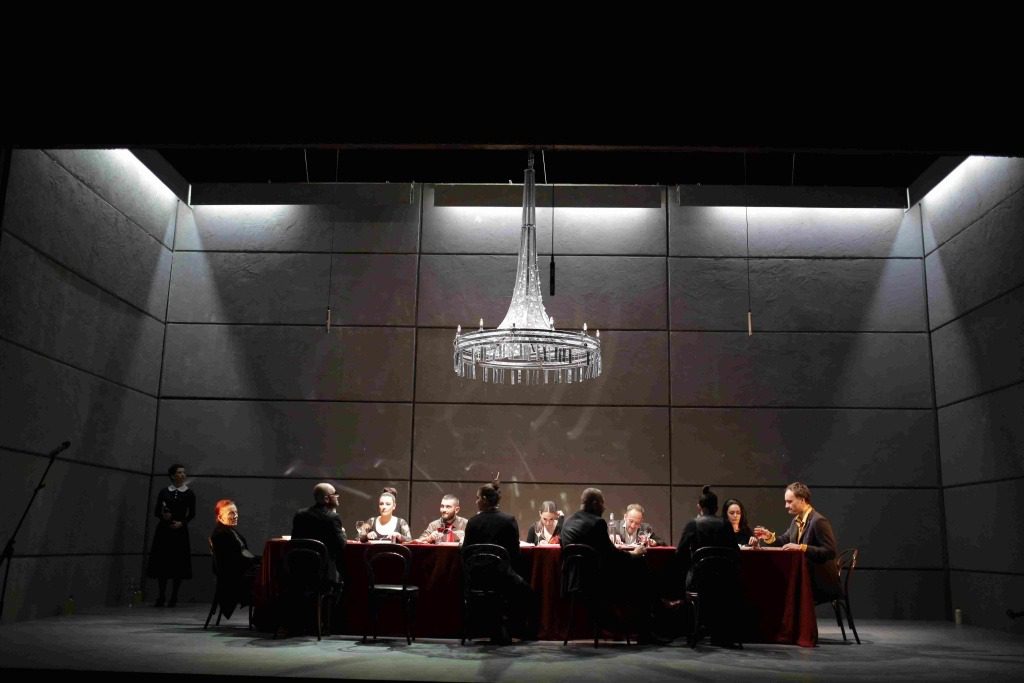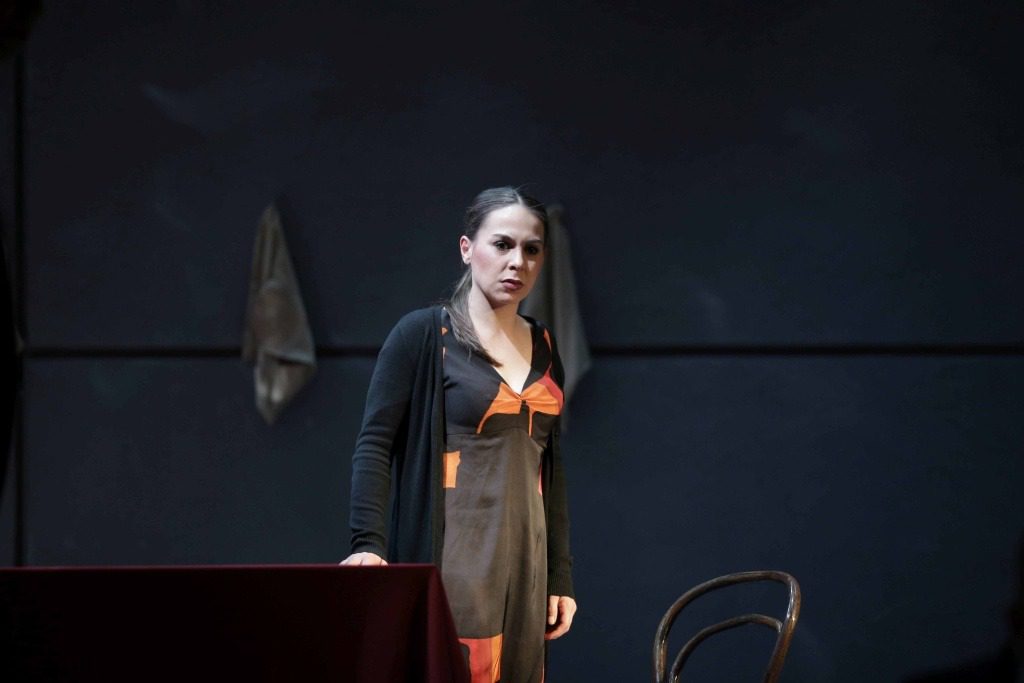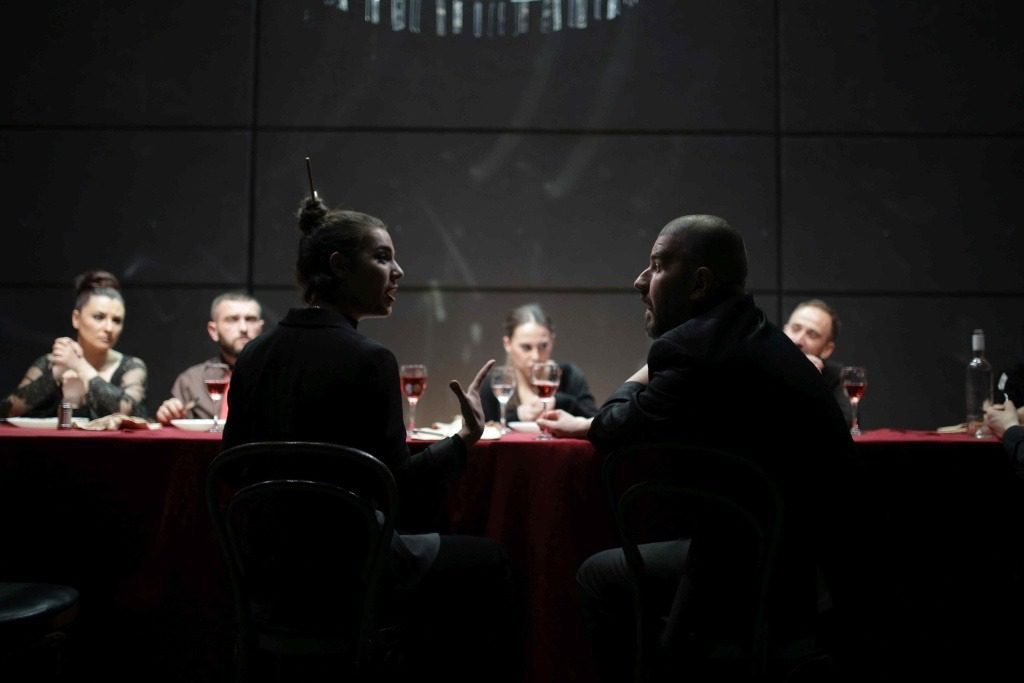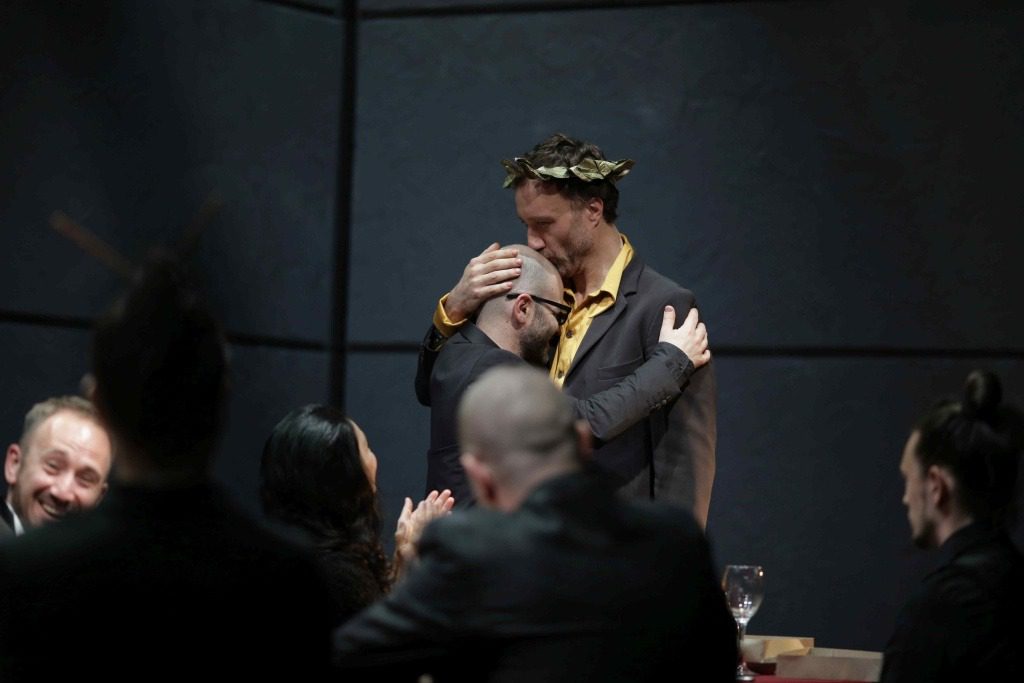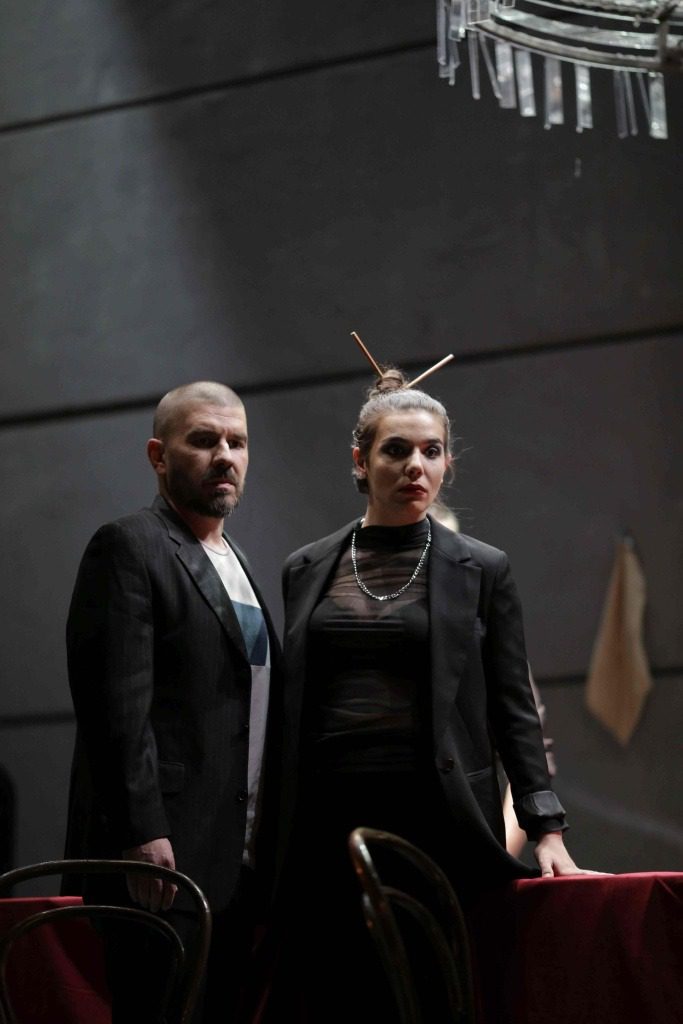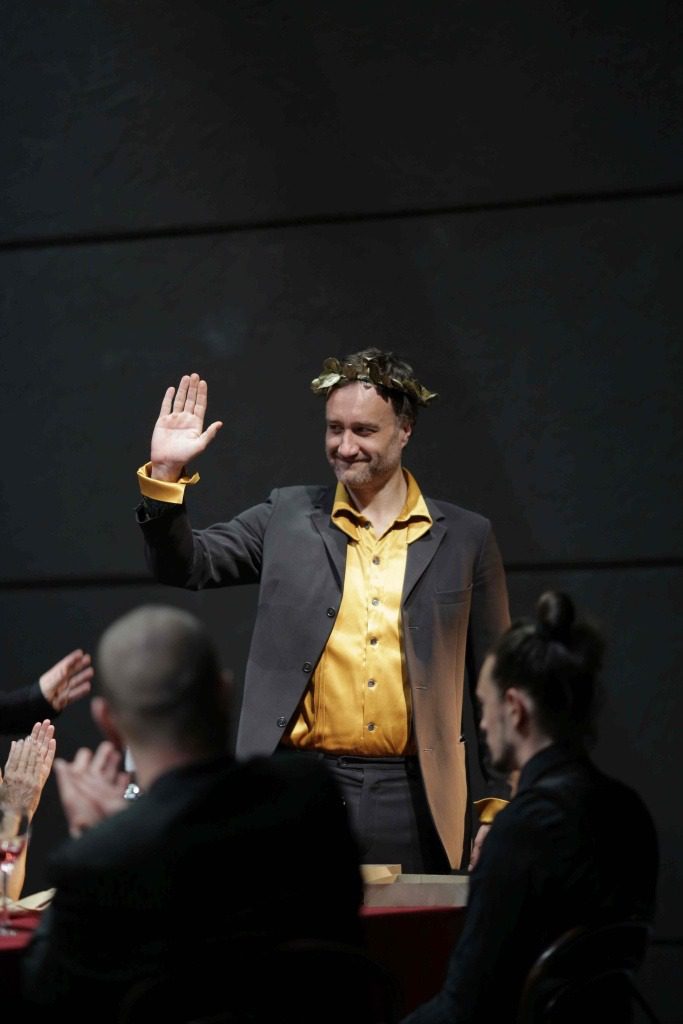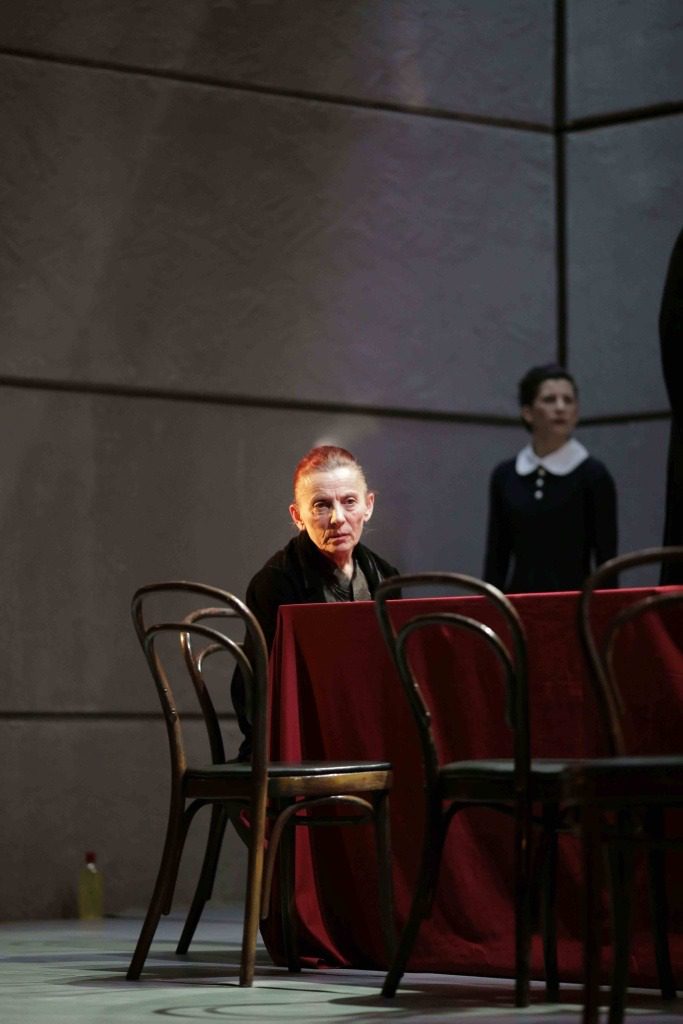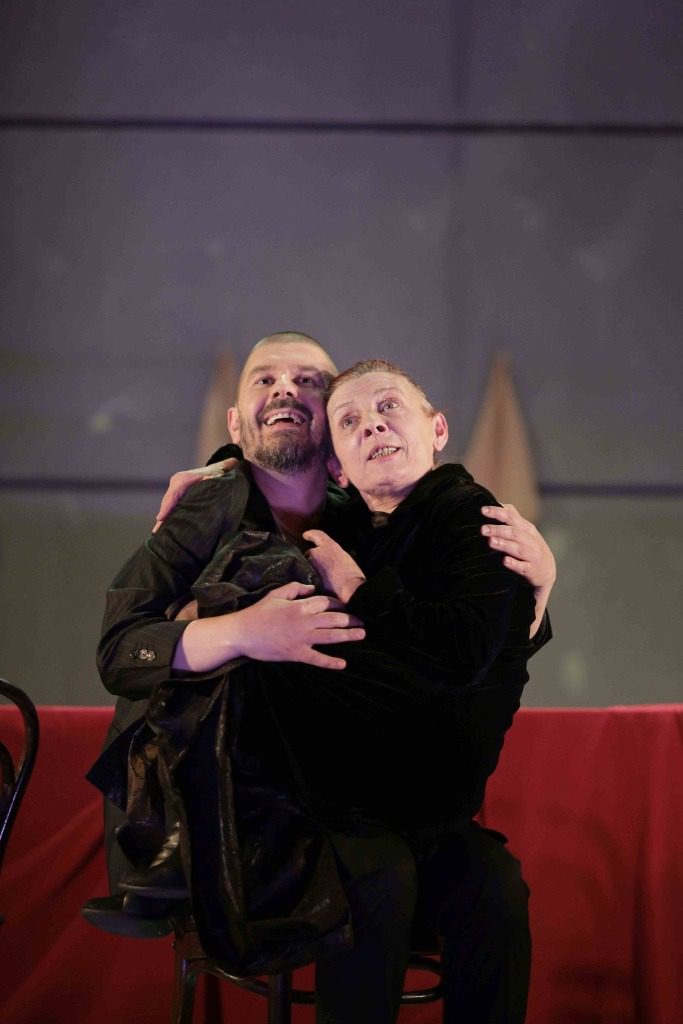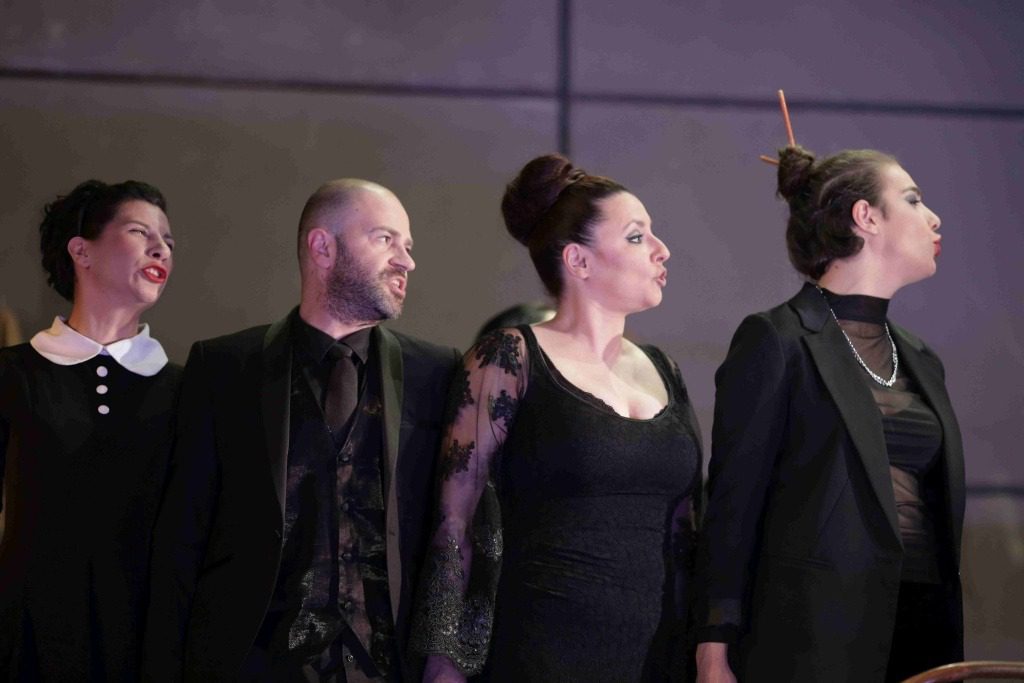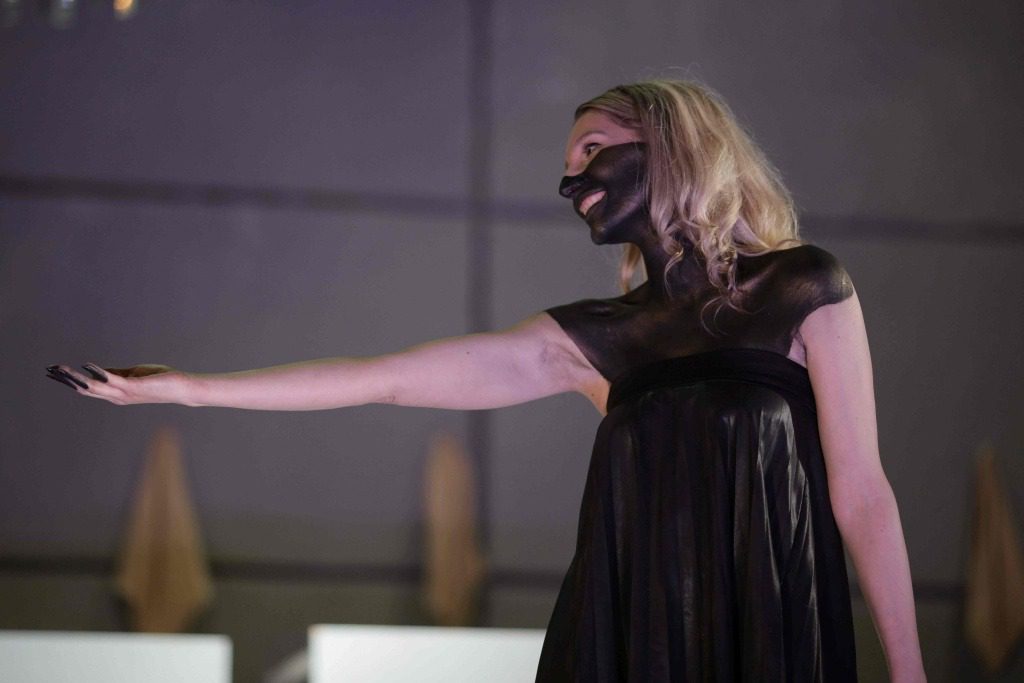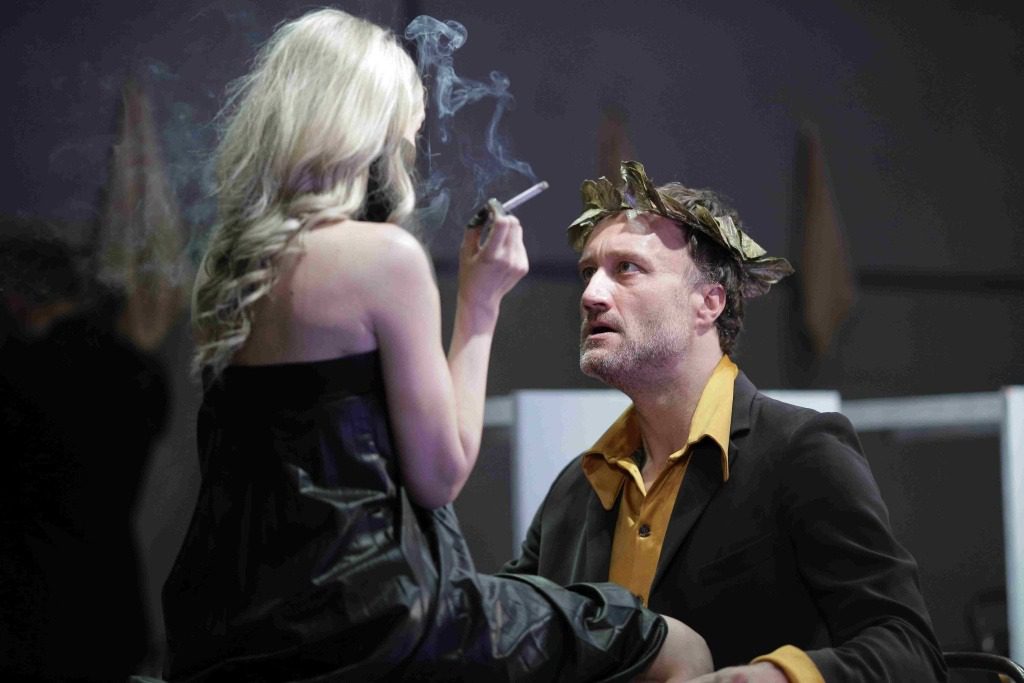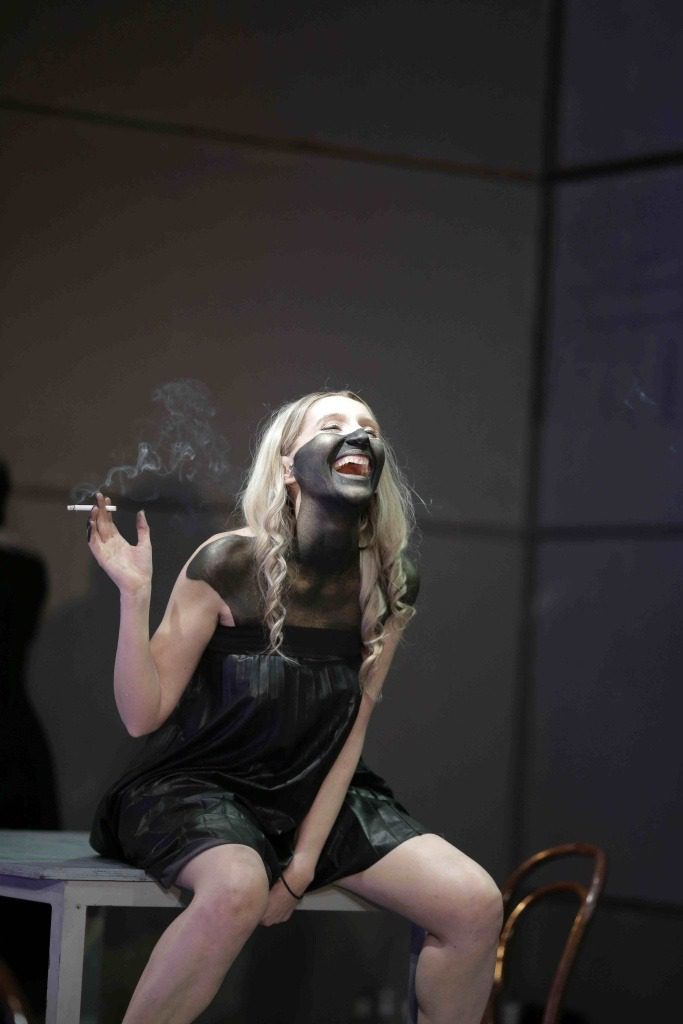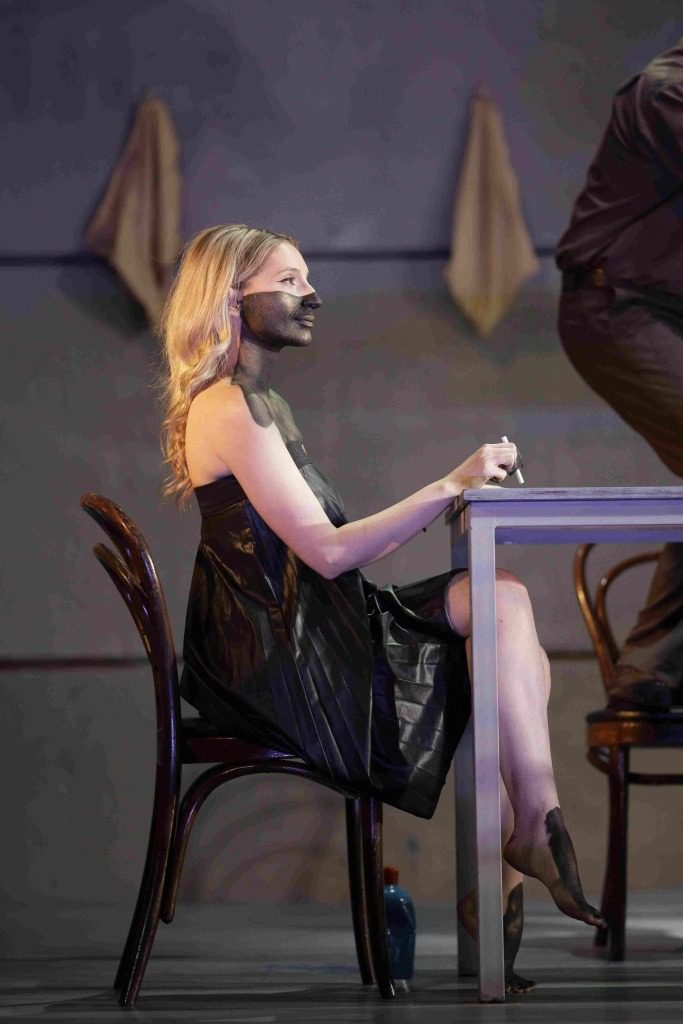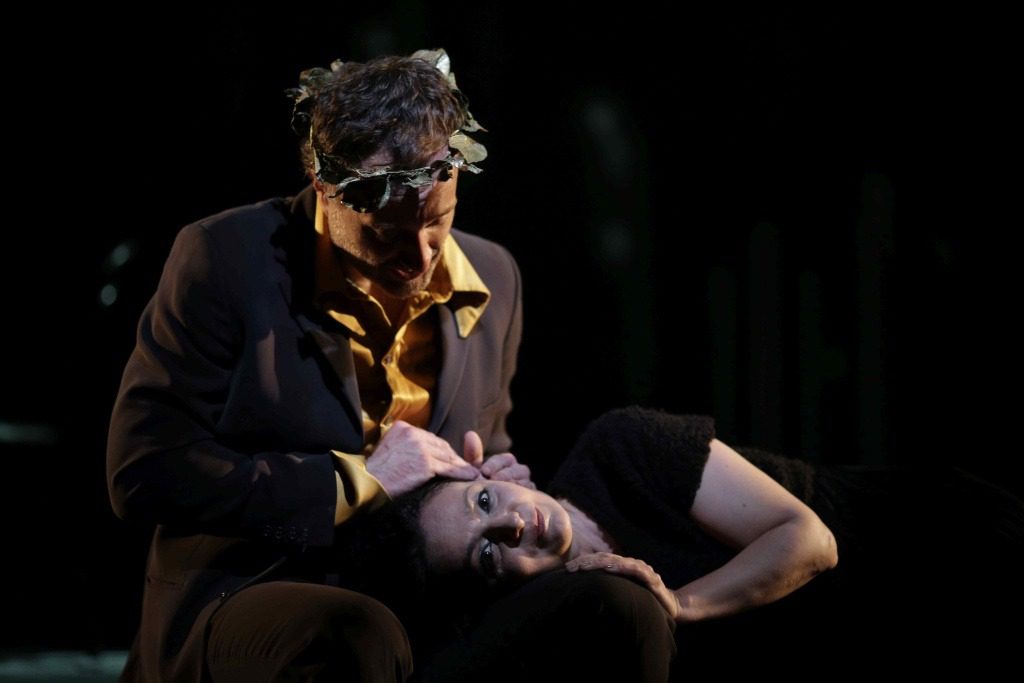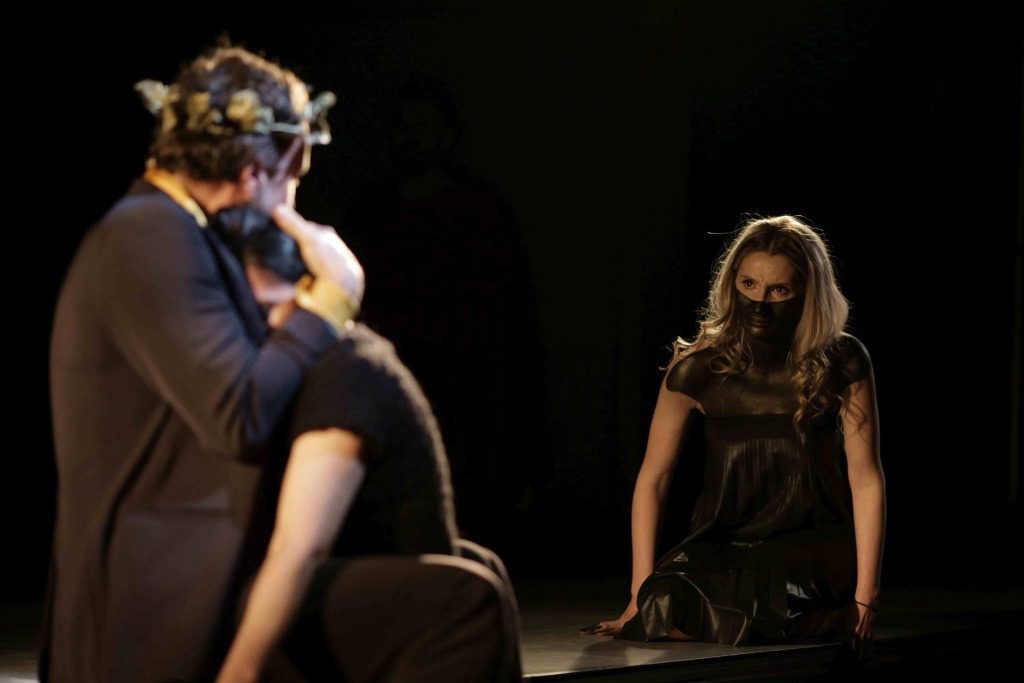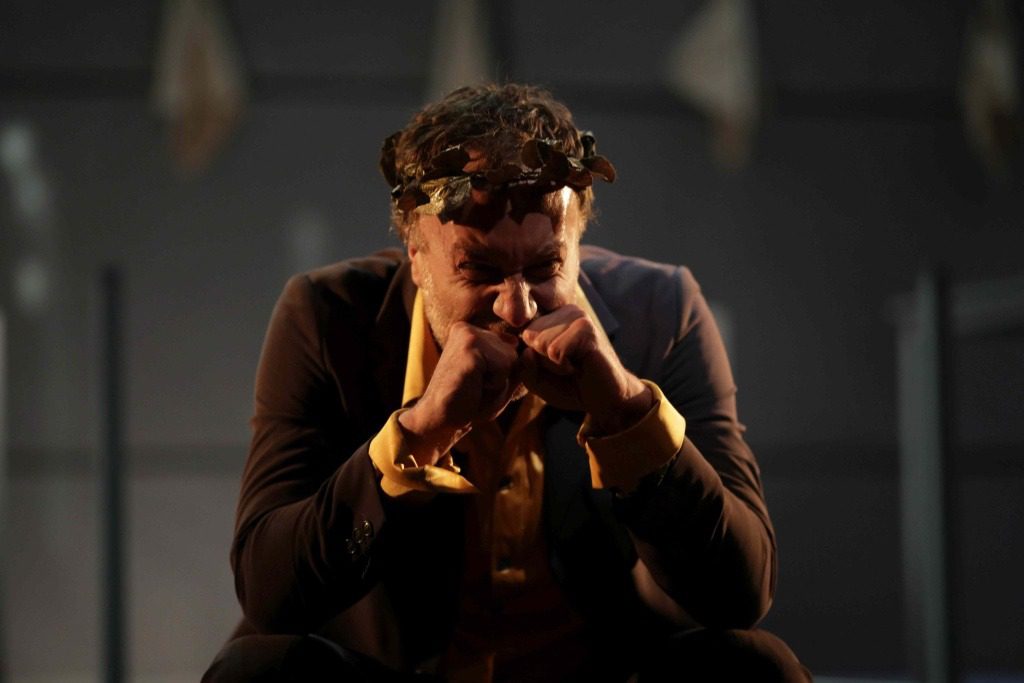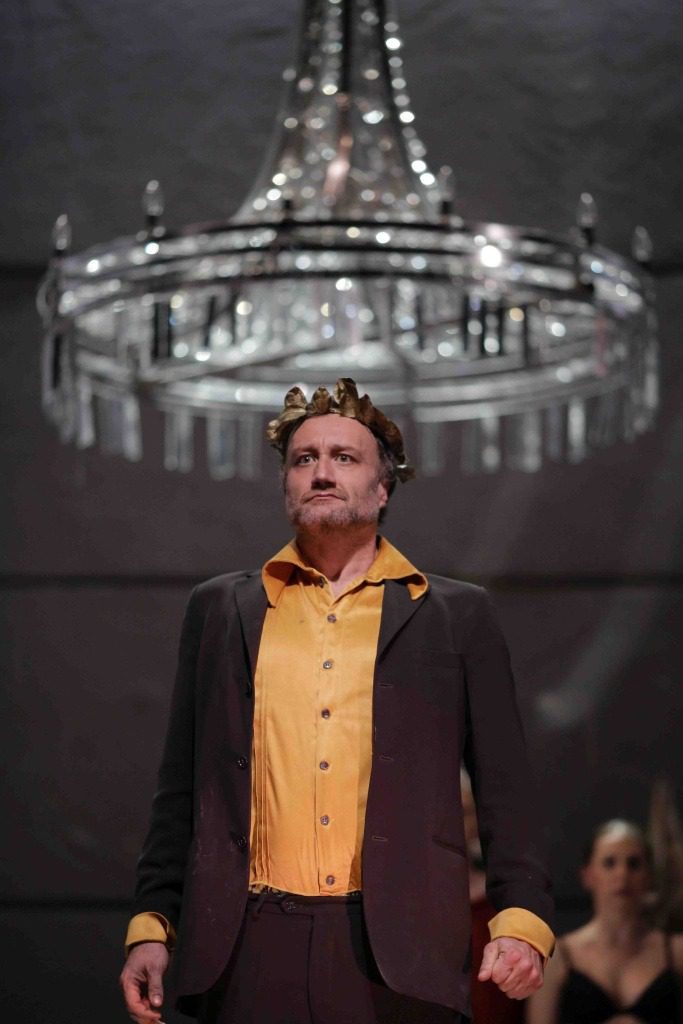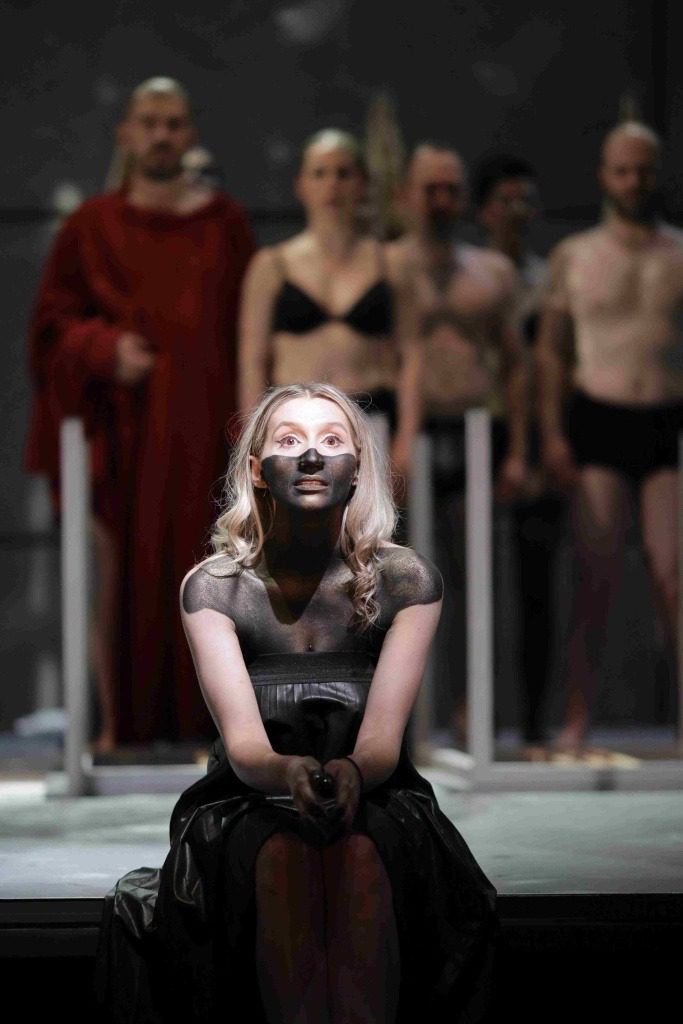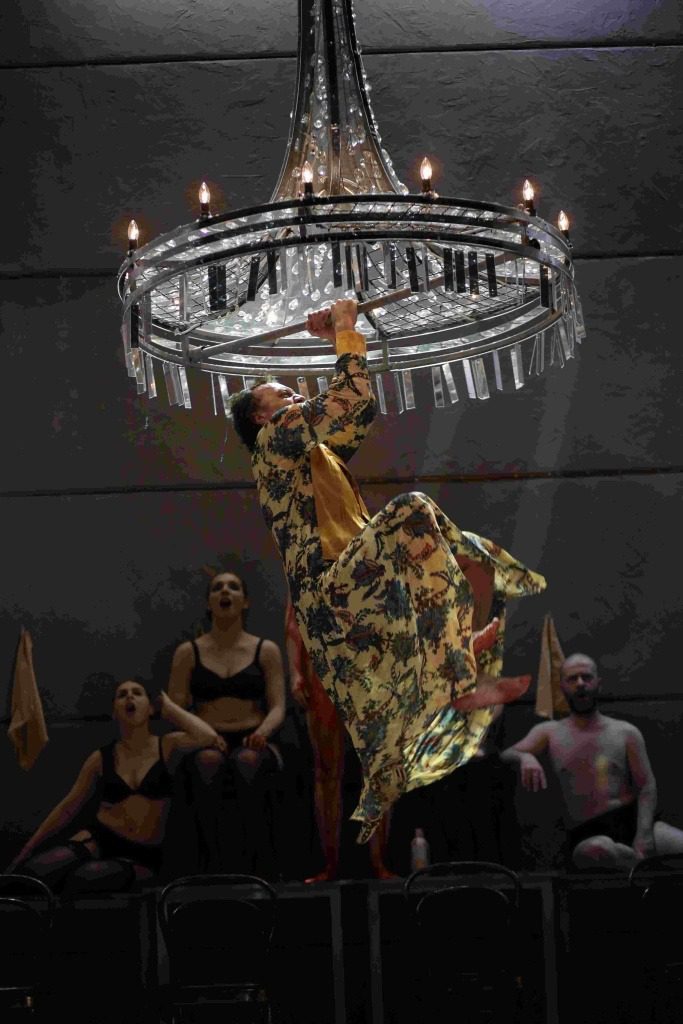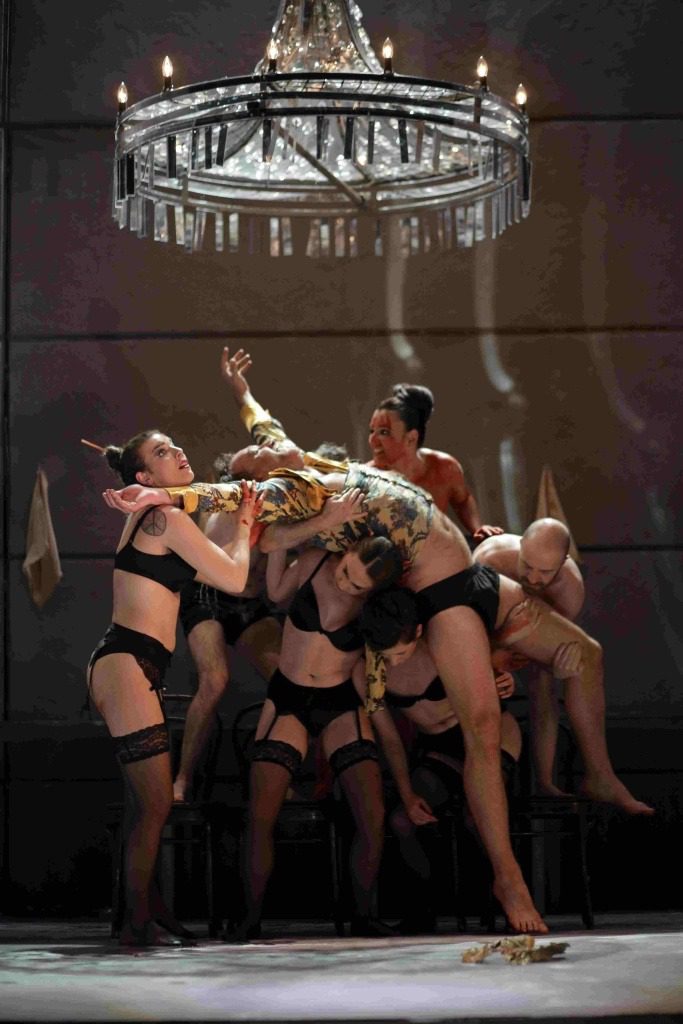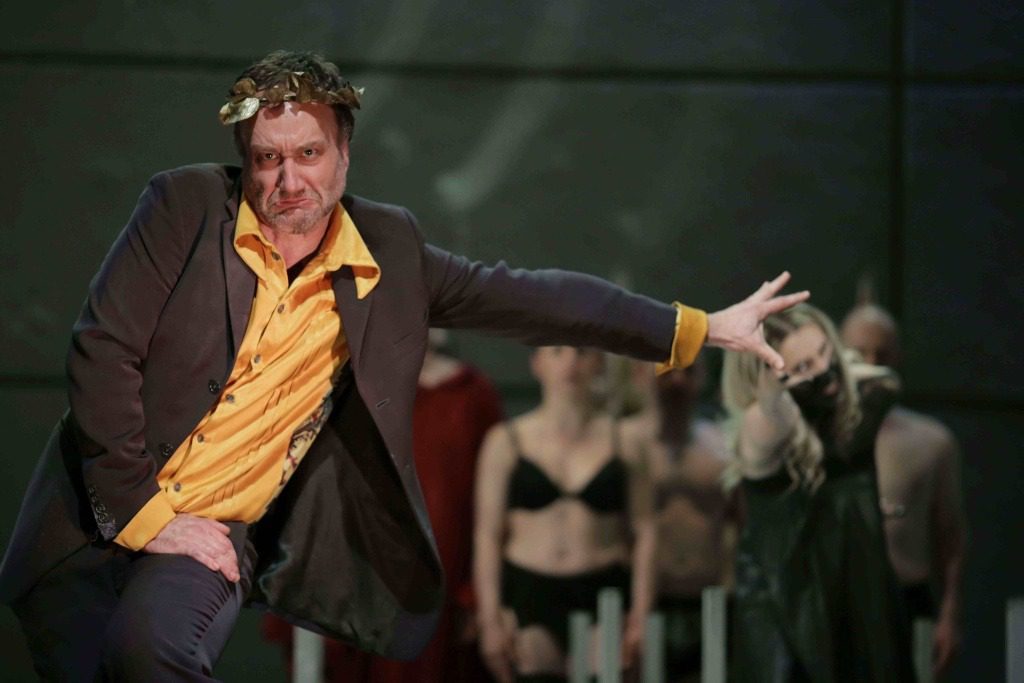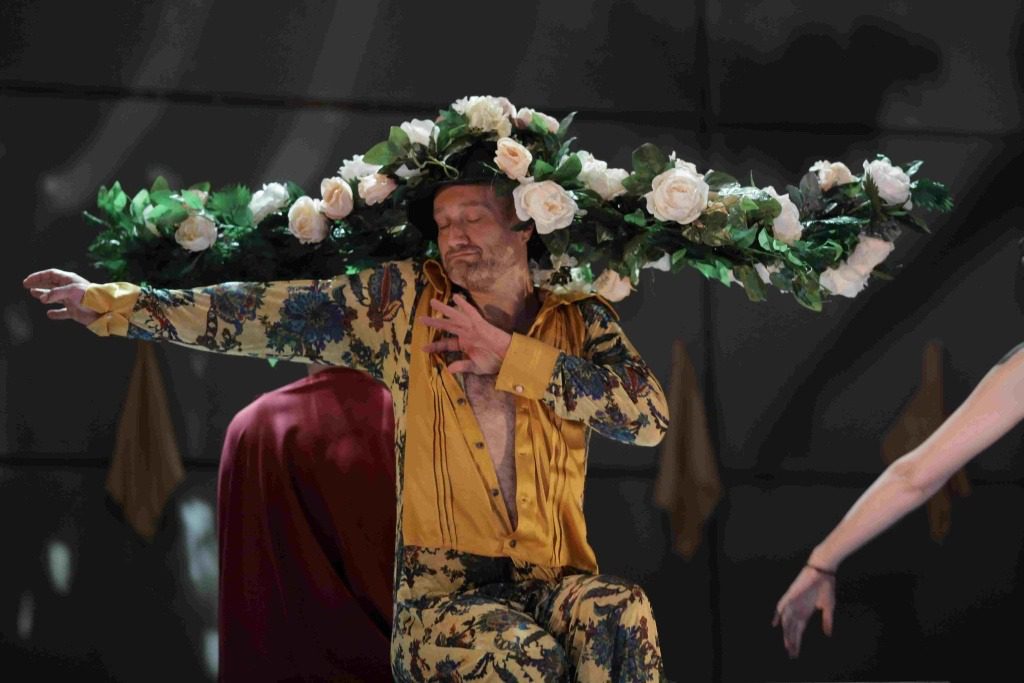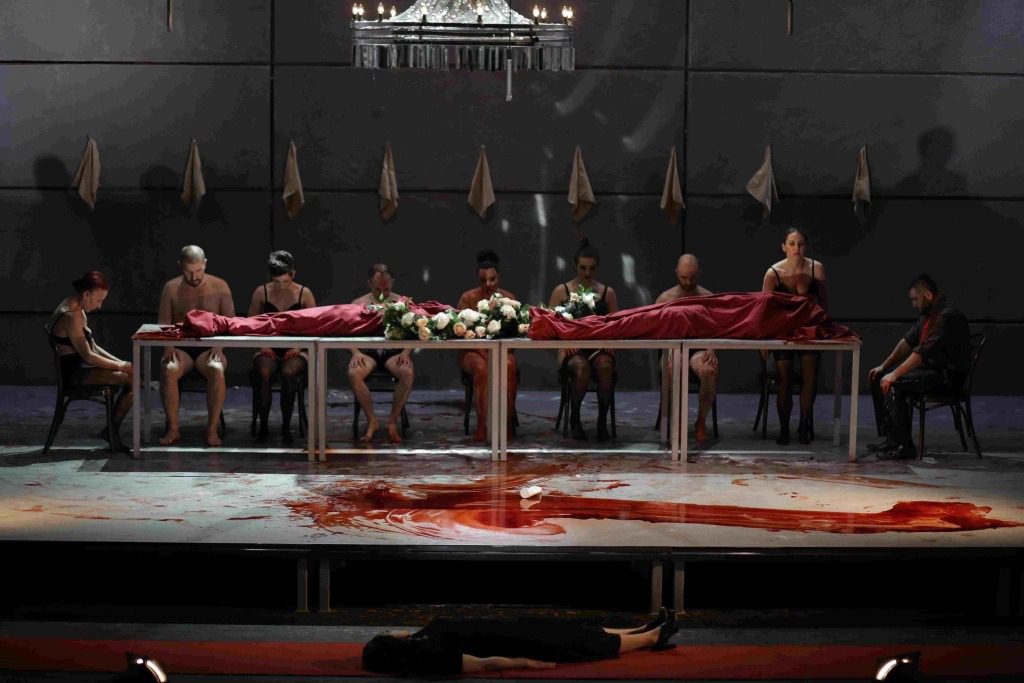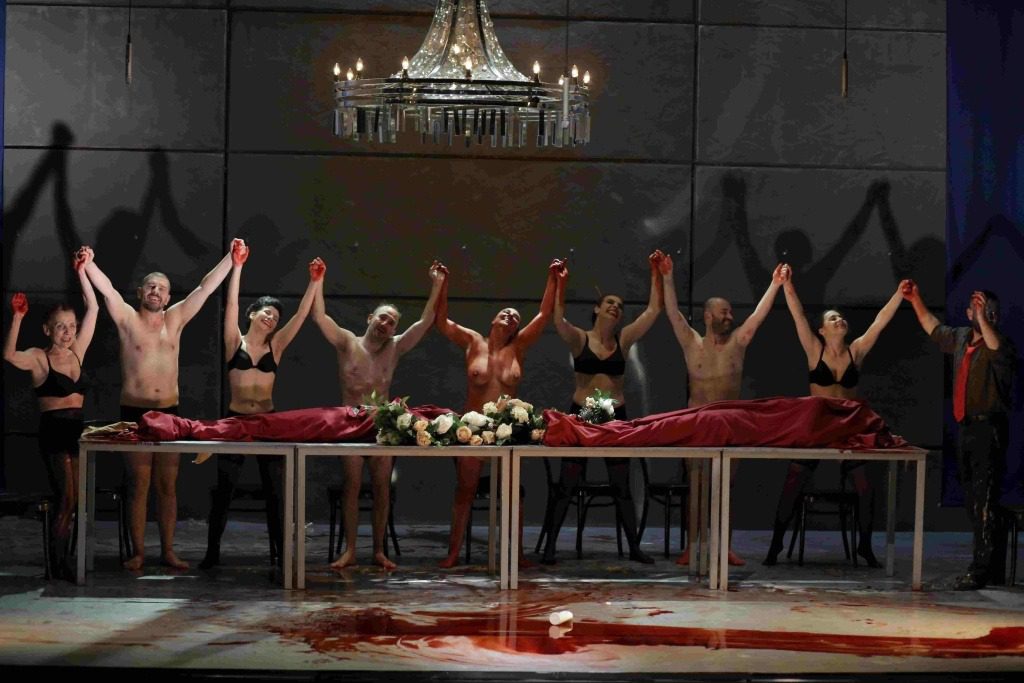BAKHI - Breakdown Overview
Direction: Igor Vuk Purse
Playwright: Biljana Krajchevska
Scenographer: Valentin Svetozarev
Costume designer: Blagoj Micevski
Assistant Director: Jovan Ristovski
Design to music: Aleksandar Dimovski
Light-master: Igor Micevski, Goran Petrovski
Tone-master: Nikolce Terzievski
Videographer: Vladimir Perelovski
Special effects, makeup artist and hairdresser: Sasho Martinovski
Inspector: Miroslav Lazarevski
Premiere: 09.05.2019
ROLES:
DIONIS – Maja Andonovska – Ilijevski
PENTHEUS – Fiery Drangovsky
Teiresia – Sonja Mihailova
CADMO – Ivan Jercic
AGAVA – Ilina Chorevska
THE MESSENGER – Martin Mircevski
THE SERVANT – Vasko Mavrovski
THE CHOIR LEADER – Viktorija Stepanovska – Jankulovska
CHORUS OF THE BACCHES –
Valentina Gramosli
Petar Spirovski
Sandra Grybowska
Anastasia Hristovska
Among the remaining and extant Greek tragedies of Euripides, Bakhi rises for several thematic and formal reasons, but perhaps most important is that the Bakhis contain the allusion to the theater itself and the fact that they speak of its hidden power and our civilizational consciousness: the power of storytelling. We can say that the Bakhis are the beginning of the "metatheatrical" text.
This text is a profound puzzle about the relativity and changeability of our identity. A study of what we recognize the divine in, at the same time a reminder that it, the "divine" comes in forms that we are not ready to accept and recognize.
Bakhi is not a text that clearly opens the division between protagonist and antagonist, a text that draws a line between good and evil, rather, it reminds us that these oppositions are created and formatted by man, that is, the man, with its ability to define and decompose (analyzing), he is unable to understand the true nature of emergent reality.
But, perhaps the most interesting question we deal with in our play is: why our identity, instead of the values we share and fight for, above all, it is constituted "with the other" - hostility towards the "external opponent"? Is that how we hide that the real "enemy among us - is ourselves?”; that we are real strangers to ourselves and to each other, that is, that nothing sabotages us more than the social obstacles we have imposed on ourselves.
Igor Vuk Purse, director
These are not just Euripides' Bacchus, these are also our bakhis, who know that theater is the most subversive weapon invented by the human mind. It is the theater that constitutes the public (the audience). The theater that became a place for questioning society and oneself, the theater that is not entertainment, but a struggling theatre. For liberation.
A, what freedom is he fighting for?? For the long forgotten one, the one that disappeared after man stopped admitting anything, except his power.
Biljana Krajchevska, playwright


